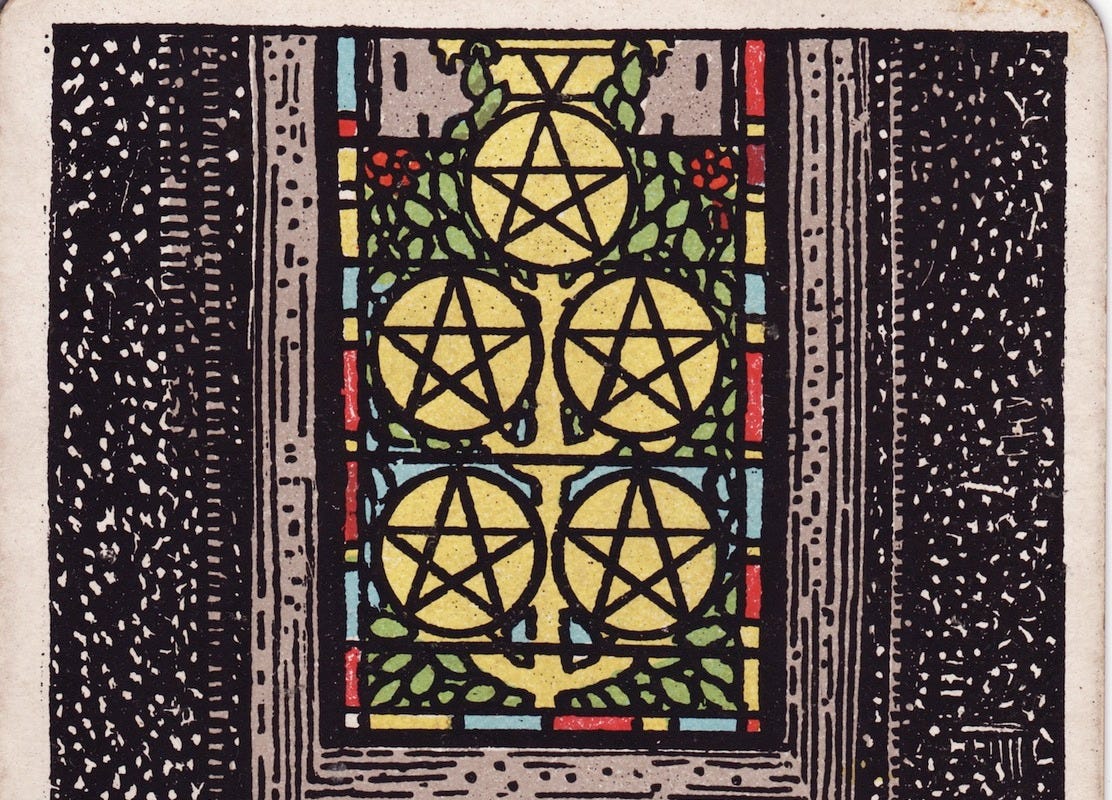Hey! Until 21 March, you can lock in a monthly or an annual subscription to From The Forests of Arduinna for 20% less. Use this link for the discount.
Humans cannot survive on promises of social equality: we require food, and housing, and the means to get those things. For instance, while government recognition of racial disparities and variant gender identities might have seemed like a real change, such symbolic gestures didn’t help those people pay rent, buy groceries, or afford even the most basic health care. And worst of all, those who put their hope in such symbolic gestures now have neither economic security nor even the symbolic recognition they had been temporarily granted.
There’s a very difficult process occurring in the world that cannot be easily explained or even described by the usual means. That’s because to use those means — the language of the theoretical, the political — would strip from this process the immense grief and fear that is actually a crucial part of it.
Fortunately for times like these, we have the mythic. The mythic helps us understand reality in a more intimate way, one which connects us back to the most ancient and human aspects of ourselves. The mythic reminds us we are not alone in our fears, our torments, or our sorrows. We are not the only ones who have needed to grieve, nor are we the only ones who’ve struggled to make sense of a senseless world.
Especially, the mythic reminds us that this difficult process, the one which has so many panicked, crippled by fear, desperately seeking understanding from handheld machines connected to webs of others just as anxious as they are, is hardly unique, nor new, nor even all that strange.
Though we might feel like the world is ending, we’re only partially correct. Worlds end all the time because that’s what worlds do. And when worlds end, other worlds are born, because that’s also what worlds do.
Perhaps the simplest, and also the kindest, way to explain what I mean is with a tarot card, the Five of Pentacles.
In most Tarot decks, the Five of Pentacles depicts a wounded person walking on crutches alongside a woman. They’re both dressed in torn clothing insufficient for the weather, passing a brightly-lit and ornate window while walking through the snow. There’s a sense of deep poverty in the deepest of winter, with no clear sign of how their situation might improve.
In Pamela Coleman-Smith’s illustration of the card, the image of a tree full of coins surrounded by verdant leaves — a vision of lush summer — on the window seems almost to taunt the two figures. They are in the cold outside, painfully aware of the warm inside of others and, worst of all, of their own memory of that warmth.
That’s an important and sometimes missed point of this card. The two figures have not always been poor. The crippled man wears a bell on his neck, possibly to warn others that he has contracted leprosy. But his crutches and his wounded foot could also suggest he was a soldier lucky enough to survive battle, yet not fortunate enough to be unscathed. And the woman’s brightly-dyed clothing, though torn, remains vivid, signaling a not-too-distant past of better times.
The newness of their situation is crucial to understanding the process this card describes. The Five of Pentacles is also sometimes called the “divorce card,” but not because it predicts or even signifies an actual divorce. Instead, it points to the feeling of panic and worry that comes when the world created around a relationship situation ends and you don’t know what life will be like next. Or as I write in A People’s Guide to Tarot:
The Five of Pentacles can also point to the moments we notice we have become over-reliant (and sometimes even addicted) to someone or something, and are struggling to adjust to this knowledge. Someone you relied on may have just turned out to be unavailable or unreliable, or some way of doing things no longer gives you the results you hoped for.
This is the moment many are in, a moment others — such as fellow druid John Beckett — have described with a card from the Major Arcana, The Tower. There’s certainly some resonance of that card to this moment, but I don’t think it quite describes what most are feeling. That’s because the Tower is a mythic expression of “sudden illumination” from an external and unpredictable source:
In The Tower, lightning has struck a high structure, causing those atop it to plummet to the earth. In French, the words for “lightning strike” and “love at first sight” are the same, and this gives you a sense of the chaotic experience to which The Tower refers. In such moments, our world feels utterly upended by an encounter with someone or something outside ourselves, and we feel as if everything is about to change.
While for some, the mythic process they are experiencing might certainly feel like an unpredictable lightning strike or calamity coming from outside, that’s not the situation we’re in. In fact, though it might seem at first unkind to say so, the worlds-ending moment we are in now has always been inevitable.






